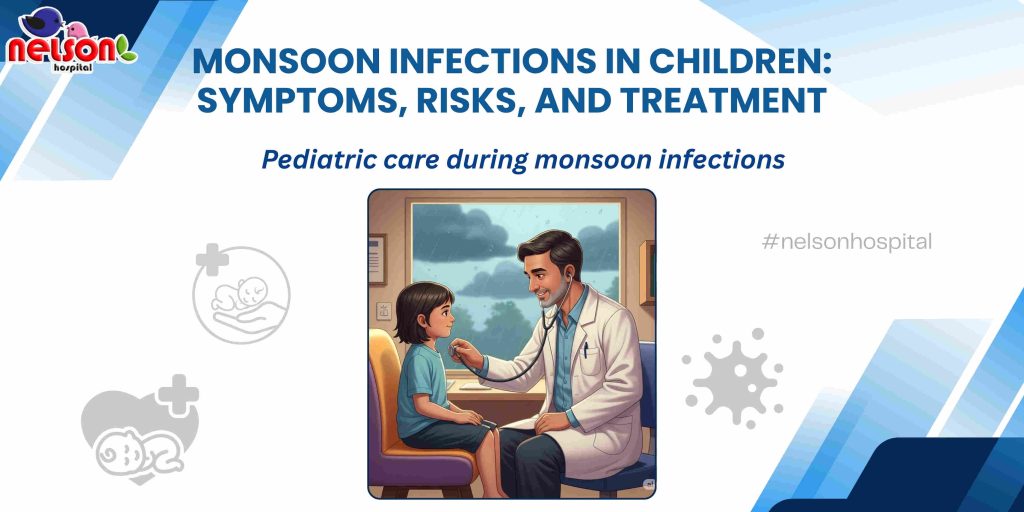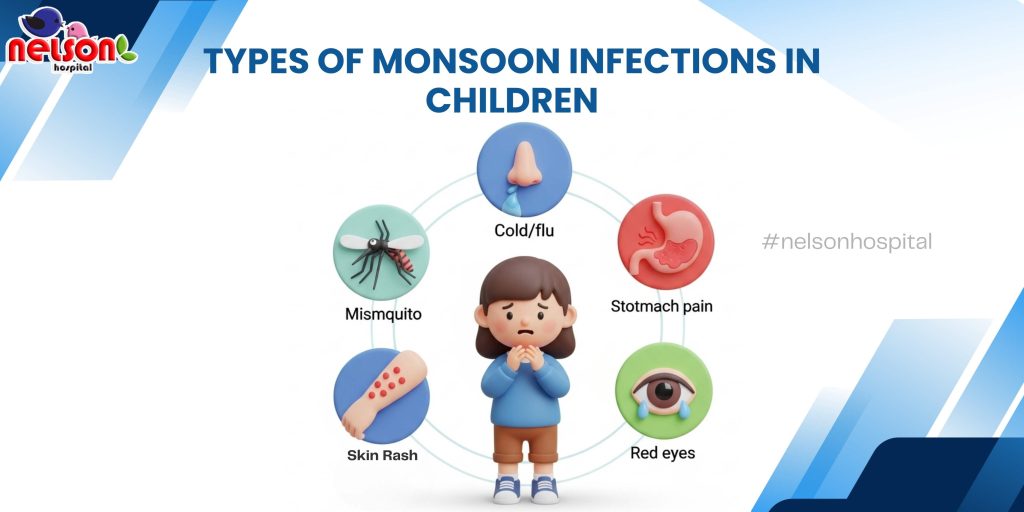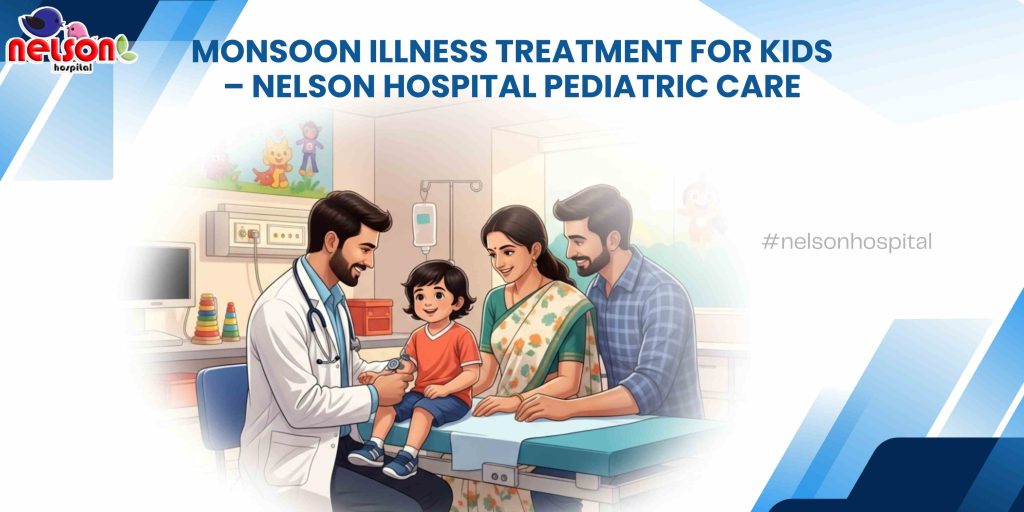World Eye Donation Day: Nelson Hospital’s First Eye Implant Surgery
World Eye Donation Day: Nelson Hospital’s First Eye Implant Surgery…
9518951959
info@nelsonhospitals.com
9518951959


Monsoon brings much-needed relief from the scorching heat, but it also creates a breeding ground for various infections, especially in children. The increased humidity, water stagnation, and temperature changes during the rainy season make kids more vulnerable to bacterial, viral, and fungal infections. As a parent, it’s essential to understand the most common monsoon infections in children, their symptoms, potential risks, and when to seek treatment. At Nelson Hospital, our pediatric experts provide timely diagnosis and effective care to ensure your child stays healthy throughout the season.

The drop in temperature and damp environment can lead to respiratory infections like the common cold, cough, bronchitis, and flu. Children, with their developing immune systems, are more susceptible.
Symptoms:
Risks:
Contaminated food and water during the monsoon can cause stomach infections in children such as gastroenteritis, food poisoning, and typhoid.
Symptoms:
Risks:
The humid environment makes skin prone to fungal growth and infections. Kids playing in stagnant water or staying in wet clothes are most at risk.
Symptoms:
Risks:
Stagnant rainwater serves as a breeding ground for mosquitoes, increasing the risk of diseases like dengue, malaria, and chikungunya in children.
Symptoms:
Risks:
Increased humidity can lead to eye infections like conjunctivitis, which is highly contagious among school-going children.
Symptoms:
Risks:
Children are more vulnerable during the monsoon due to their underdeveloped immune systems and increased exposure to environmental factors. They often play in rainwater, get wet frequently, and may consume contaminated food or water, which increases the risk of infections. Sudden weather changes also make them prone to respiratory illnesses, while the humid conditions promote skin and fungal infections. Poor hand hygiene and close contact in schools can further spread infections quickly. As a result, children are more susceptible to viral fevers, stomach bugs, and mosquito-borne diseases like dengue and malaria. Timely care and hygiene practices are essential to protect them.
Children have developing immune systems and are naturally more active and exposed to outdoor environments. Playing in rainwater puddles, eating unhygienic food, and poor hand hygiene increase the risk of infections.
At Nelson Hospital, our pediatricians stress on the importance of seasonal awareness and early treatment to avoid complications.

At Nelson Hospital, we specialize in pediatric care, offering:
Our experienced doctors conduct thorough evaluations and recommend the right diagnostic tests.
Depending on the infection, we offer targeted antibiotic/antiviral/fungal treatment.
Especially for gastrointestinal cases to avoid dehydration
In case of serious infections like dengue or pneumonia.
You should consult a pediatrician if your child experiences:
Nelson Hospital is equipped with 24/7 pediatric emergency services, ensuring your child receives care when it matters most.
Monsoon infections in children are common but can be effectively managed with timely care and awareness. Parents should remain vigilant about symptoms and take prompt action. At Nelson Hospital, our team is committed to delivering trusted, child-friendly care throughout the rainy season.
If you suspect any monsoon-related illness in your child, don’t wait. Visit Nelson Hospital for expert pediatric care and a quick recovery.
World Eye Donation Day: Nelson Hospital’s First Eye Implant Surgery…
Why Food Poisoning Is More Common in Monsoon and What…
Why Are Urine Tests Important for Early Disease Detection? When…
Which Food to Avoid for Kidney Stones and What Foods…
When Surgery Is Needed in Urology Cancer Treatment: A Doctor’s…